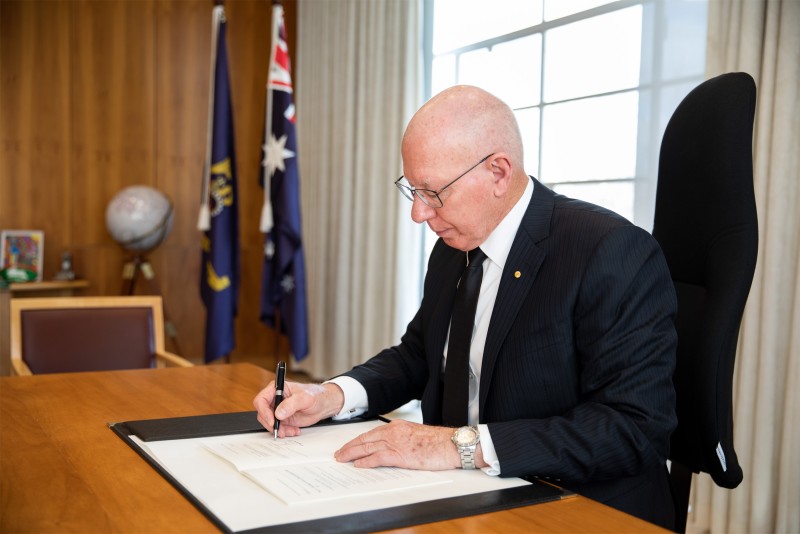Can the Governor-General create or change a law? If so, can they do it without the permission of the Prime Minister or the King?
The Governor-General is a key part of the Australian Parliament but is unable to create or make changes to existing laws.
However, the Governor-General can suggest an amendment – change – to a bill – proposed law – which has already been agreed to by the Senate and House of Representatives. The bill, with their suggestion, would then be returned to the Parliament for discussion.
The Governor-General does not need the permission of the Prime Minister or the King to suggest a change to a bill, although they could discuss it with them.
The final stage in making or changing a law is when the bill receives Royal Assent. This is when the Governor-General checks and agrees to the bill on behalf of the King. Once again, the Governor-General acts independently and does not need the permission of the Prime Minister or the King to sign the bill into law.
The Governor-General signing a bill.

Office of the Secretary to the Governor-General
Description
The Governor-General wearing a shirt and tie sits at a desk with a pen in hand signing a piece of paper. Behind him is an Australian flag.